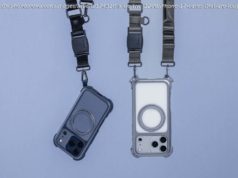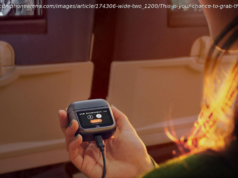The important thing is not to wait.
The name “Equifax” now sends shivers down our spines. The company we once trusted to handle our credit scores has become a pariah of the financial world, ever since Equifax allowed hackers to steal vital information from 145 million American adults.
I’m one of them. You probably are too. Check if your personal data was exposed in the Equifax data breach.
How much information was stolen? Let’s start with the basics: Your name, Social Security number, and birthdate. That alone is a treasure trove for identity thieves. But they also may have your address and driver’s license number. These people know where you live. They can find out almost anything about you. The list of nefarious things they can do is beyond comprehension.
An example? Learn how the Equifax breach lets ID thieves pay for surgery on your dime .
Here’s my best advice: Assume the worst. They hackers have your information, and Equifax can’t do anything to protect you. Law enforcement is too overwhelmed to find the culprits, and you are completely exposed.
Here’s what to do next.
If you work at a modern business or organization, you’re probably familiar with this process already. Two-factor authentication (2FA) adds an extra verification step to the login process of your most critical accounts. When a website asks for your user name and password, you may also receive a text message with a special code or a special email. This is a standard practice and is considered safe.
The idea is that even though hackers may have figured out your credentials, without the special code, they still won’t be able to access your account. Cyber-criminals would have to nab your physical cell phone as well, which is probably protected by a passcode. Using this system makes the task much too complicated, especially when many of these hackers are located in other countries.
Who allows 2FA?
Several websites and email providers already offer 2FA to help protect accounts. The problem is that these sites and providers don’t seem to promote these extra security measures. It’s up to the user to figure it out.
Use Amazon, Google or Facebook? How about Apple or Microsoft? All offer 2FA protection, but only if you take a few minutes to set it up. Click here for the steps you need to take now to lock down your accounts.
But what about banks? Incredibly, not all banks support two-factor authentication. Given recent events, I expect this trend to change. In the meantime, you’ll have to check and see whether your online banking permits 2FA. If so, sign up for it right away.
You can usually set up two-factor authentication either on your online banking account page or within the bank’s official app. Here are the links to some of the more popular banks or financial institutions’ two-factor authentication setup page:
· Bank of America
· Capital One
· Discover
· USAA
· Wells Fargo
If your bank is not on the list above, call or visit your bank.
Okay, you’ve done your best to secure your accounts. It will be hard for hackers to break into your bank or email. Remember, the Equifax hack happened last spring. Cyber-criminals have had plenty of time to steal your identity. So what can you do to keep them from finishing the job?
Try executing a “ credit freeze,” more accurately known as a “security freeze.” The name may sound strange, almost like sabotaging your own finances, but it’s a common defensive maneuver. If you suspect someone is already pretending to be you, you can lock your credit reports so that no one can open a new account in your name.
How does this work? Lenders will consult your credit score before they start a partnership with you. If lenders can’t check those scores, no new accounts can be established.
Step by step: how set up a security freeze.
The most important thing is not to wait. Hackers move quickly, and this is their full-time job. If they can steal your identity and bank account, they will, and as expediently as possible. Equifax made one of the biggest blunders in banking history. Now it’s up to us to clean up the mess.
How else can you protect your finances? Call my national radio show and click here to find it on your local radio station. You can listen to the Kim Komando Show on your phone, tablet or computer. From buying advice to digital life issues, click here for my free podcasts.






